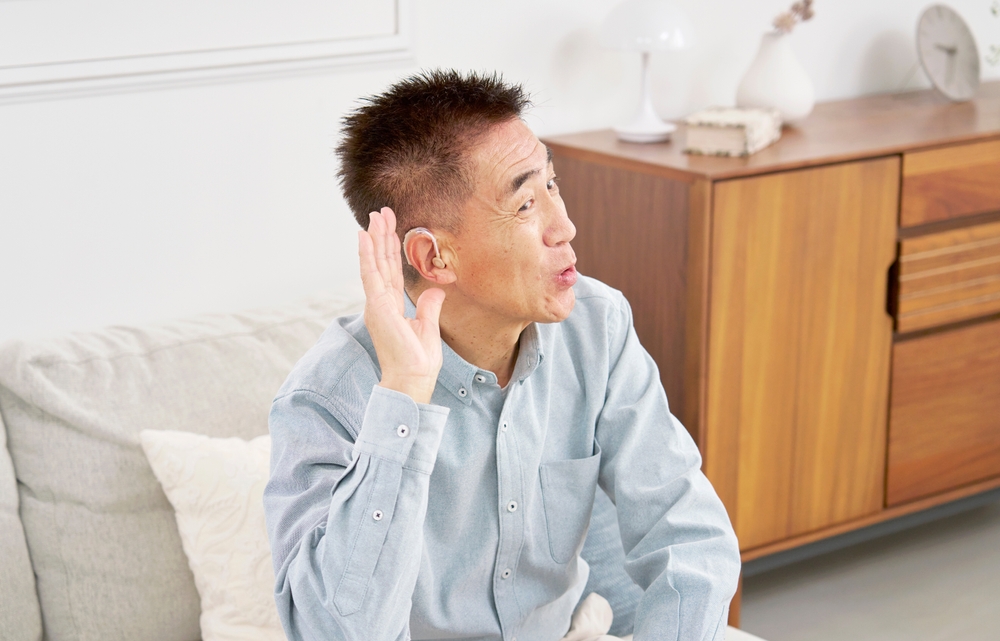Your First Week with Hearing Aids: What to Expect and How to Adapt
Getting hearing aids can be both an exciting and emotional experience. You want to hear clearly so that you can participate in conversations and stay connected with your loved ones. At the same time, it’s common to feel uncertain or self-conscious about wearing your new hearing aids.
Rest assured knowing that you will adjust quickly and modern technology makes it easier than ever to get used to using your new hearing aids. Most patients need about a week for their transition period, which gives the brain time to re-learn how to interpret the sounds that are coming through the hearing aids. These adjustments can take time, but it’s worth the effort because of all of the benefits you will be able to enjoy in the future… better communication and higher confidence in everything that you are doing.
Here at Fairfax Hearing Center, our team is available to help you choose the right hearing aids and navigate the transition as smoothly as possible. We offer personalized care and follow-up support every step of the way, helping you have the best experience with your new hearing aids.
In this guide, we are sharing an overview of what you can expect during the first week with hearing aids, as well as tips that will help you adapt through this process.
Day 1: Everything Seems So Loud
A psychological phenomenon happens on the first day that you start wearing your hearing aids. Since your brain has adapted to quieter input because of all the time you’ve lived with untreated hearing loss, using hearing aids will suddenly amplify the noises that are around you. It’s common to hear sounds that were previously unnoticed, and these things might catch your attention, such as footsteps in the house, paperwork being shuffled, or the noises other people make when chewing.
The sudden increase in sound can feel a bit overwhelming in the beginning … and this is completely normal! Your brain needs time to adjust and start filtering the background noises again.
We recommend gradual use. Start wearing your hearing aids in quieter environments and for short periods of time, and then take a break to give your brain a break. If you notice that certain things feel too loud or the sounds seem to be distorted, then make sure to jot down a few notes to share with our team during your follow-up visit, because there are often options to adjust the settings.
Days 2 & 3: Getting More Comfortable
A few days in, you will notice that you are starting to get more comfortable with the different noises. It also takes a bit of time to adjust to the feeling of having something in your ear. Be patient and understand that both the hearing discomfort and physical discomfort can start to diminish within just a few days.
Practice inserting and removing the hearing aids carefully, and make sure to be gentle when you are cleaning them. If you are feeling irritation in your ears, then take a short break and consult with our team if needed.
There is also an emotional adjustment that you will start to experience, such as feelings of frustration or even being self-conscious about your appearance. Acknowledge these feelings and remember that hearing aids don’t define you as a person. They are amazing tools that help you live a fuller, more mindful life. Now you are reconnected with the sounds of life, ranging from conversation and laughter to the birds outside your window. Keeping a positive mindset is helpful so that you can quickly adapt to the physical and emotional changes you are experiencing.
Days 4 & 5: Training Your Brain to the New Sounds
During this adjustment time, changes are happening within your brain, known as neuroplasticity. Your brain is re-learning how to process the sounds that are coming through and the right ways to prioritize these noises.
You might do some exercises to help with this brain training, such as practicing with your hearing aids in a quiet room before using them in a loud or crowded group setting. Also, try watching TV or listening to podcasts with the captions on so that you can ensure comprehension.
Note: Fatigue is common. Your brain is working harder than normal, so it’s common for people to feel more tired during this adjustment period. Give yourself the self-care and rest that is needed, especially if you are starting to feel frustrated.
Every little bit helps. Even using your hearing aids for just a few hours a day at first will accelerate your adjustment. You can continue increasing your usage until you are at the point where you can wear them throughout the day.
Common First Week Hearing Aid Challenges (And Easy Fixes)
You might notice common issues during this adjustment period, such as:
- Whistling feedback
- Echoing sounds
- Occlusion effect (feeling like your own voice sounds strange)
- Difficulty distinguishing background noises in loud settings
Often, these issues are due to the way your hearing aids are fitting or the volume settings that you are using. So, try adjusting the settings and avoid turning the volume too high. Make sure that your hearing aids are inserted into the ear securely.
Many modern hearing aids have smartphone apps that can be used for real-time adjustments. Tweak these settings to find the perfect balance that feels best for your unique needs.
When to Visit Your Audiologist Again
We always recommend that patients come back into our office for a follow-up appointment within 1–2 weeks. During this visit, we can recalibrate and adjust anything that is needed to help you achieve the best results possible. Call us sooner if you are experiencing any of these things:
- Pain
- Persistent whistling or distortion
- Discomfort that doesn’t go away within a few days
- Connection issues
- Sudden battery drain
Remember that professional adjustments are normal and part of this process. We are here to assist so that you have success with your new hearing aids.
The more you adjust to your new hearing aids, the better life you can enjoy. Our professional team at Fairfax Hearing Center is here to support you every step of the way.
Request an appointment online or call us at (703) 343-9732 and get personalized recommendations.

